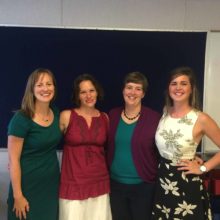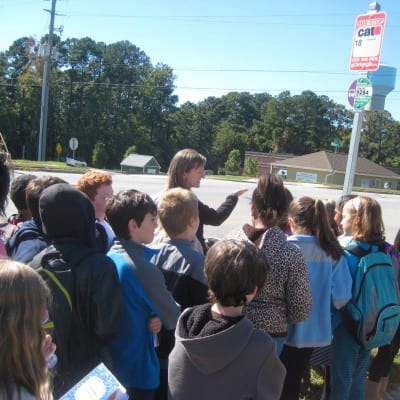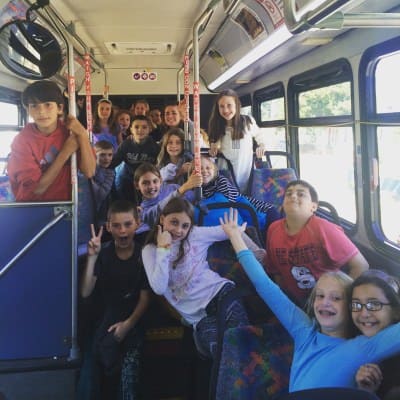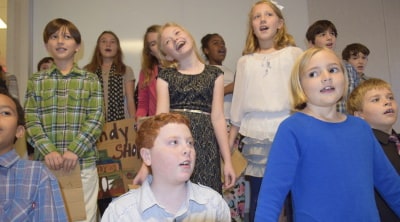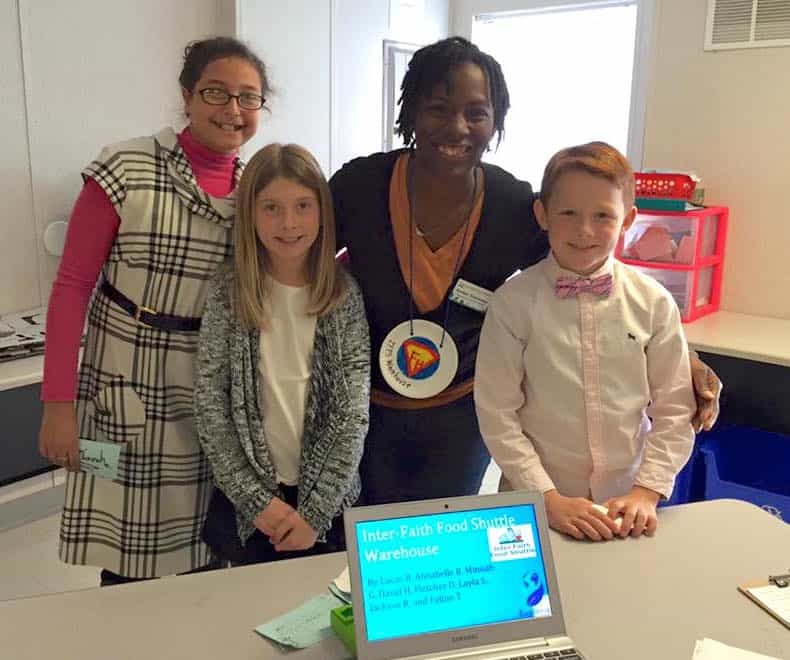

Over the last twelve weeks, 88 fourth and fifth graders of The Exploris School explored nutrition through the lens of civic engagement. The Exploris School is located in downtown Raleigh in an area that is identified as a food desert.
After learning about healthy foods, and the difference between surviving and thriving, students took to the streets to investigate local food access.
Because 35 percent of households in the surrounding neighborhoods have no personal car, the students walked to two convenience stores within one mile, and took the city bus to the two closest grocery stores, 2-3 miles away.
Student reflection on this experience revealed changing perspective. Malik wrote, “I was surprised that [the Exxon] had no fresh fruits or vegetables, they were only in cans.” Chayse concurred, “I can’t believe some people shop [for food] there. They are probably not thriving.” Students also examined the price differences and accessibility between the closest shopping options and learned that residents could pay up to four times as much for the same item purchased at the convenience store than at the grocery store.
Inspired by this experience, the student groups identified, researched, and interviewed fourteen “food heroes,” local people and organizations working to support the community’s food needs with healthy, nourishing options. They practiced formal interview techniques, and then traveled by foot and by car to meet their heroes. Students took the lead in the interviews as they sought an understanding of what inspires these amazing people, the kinds of work they are doing to help those in need, and what they, as students, can do to support these organizations’ needs.
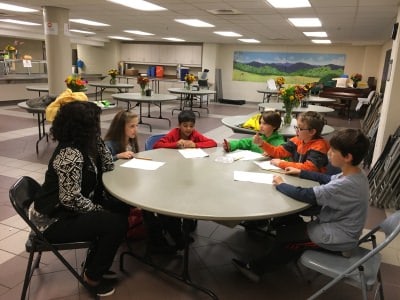

Reflecting on this experience, Everett wrote, “Even if you have healthy food access, it doesn’t mean other people have healthy food access. So you should do all you can to help the other people around you.” Evan stated that, “Working with these food heroes and going on trips to local stores has changed the way I think about food accessibility.”
Upon returning from the interviews, the students created presentations for an audience of nearly 200 guests including many of the food heroes. They also designed commitments to service, projects based on the needs of each organization. For example, one group plans to hold a tool drive for the Camden Learning Garden. Another group will design materials for the downtown Food Action Boards through the Community Food Lab.
The change in students’ perspective about food in their community was evident at the culminating Food Heroes Celebration event where the students proudly presented about each of the 14 amazing food heroes and the impact of their work in the community. Students also presented the commitments to service they developed out inspiration from the work of the heroes they studied. Our team created a video to share a glimpse of the learning that occurred in our classrooms over the last 12 weeks during the presentation, as well.
Final reflections from the class capture how much this experience changed student thinking about access to food, their community, and the difference they can make in the world:
“I didn’t pay attention to this issue before, now I realize we can make a change, and I want to find a way to do it,” Dalia, 5th grade.
“After this expedition, I can see all the people that are in need and all that help those in need. It changed my point of view,” Teagan, 4th grade.
“My experience with my food hero made me think very differently about food availability. At first, I thought that everyone had access to healthy food, but now I realize that some people don’t. I also realize that people are trying to make a change,” Elena, 5th grade.
“It changed the way I thought about food availability because I didn’t know that so many people didn’t have access to food and had to go through so much to be able to get food,” Ava, 4th grade.
